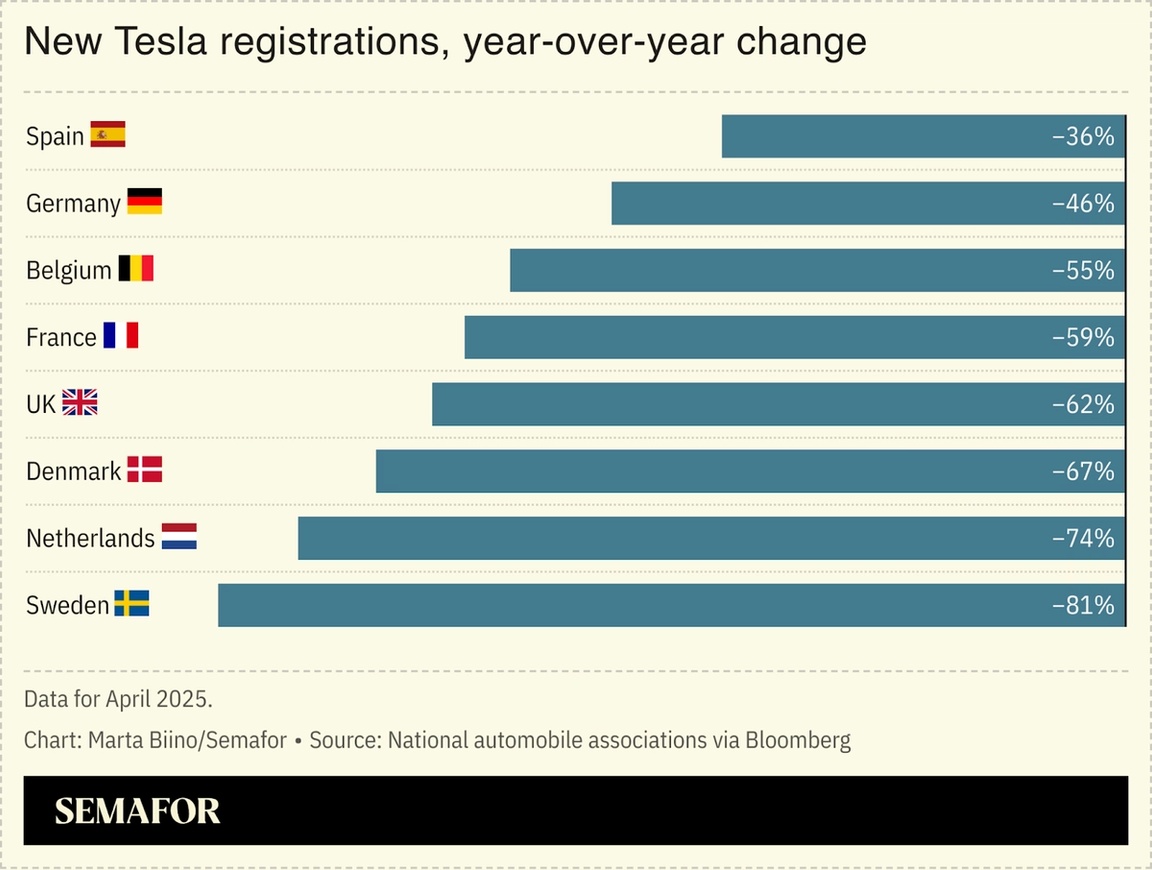 Tesla’s revenues dropped still further, especially in Europe, adding to an already calamitous 2025 so far. The number of vehicles sold by the Elon Musk-led firm fell 81% year-on-year in April in Sweden and 73.8% in the Netherlands, with steep falls in Denmark, France, and the UK, despite demand for electric vehicles going up. The US saw a smaller but still noteworthy fall, Inside EVs reported. Europe is a particular issue since Tesla opened a “gigafactory” in Germany in 2021, capable of building 375,000 cars annually but “likely to be underutilized for some time,” Ars Technica reported. Competition from China is part of the problem, but Musk’s embrace of right-wing politics also appears to be toxic to many EV buyers. |